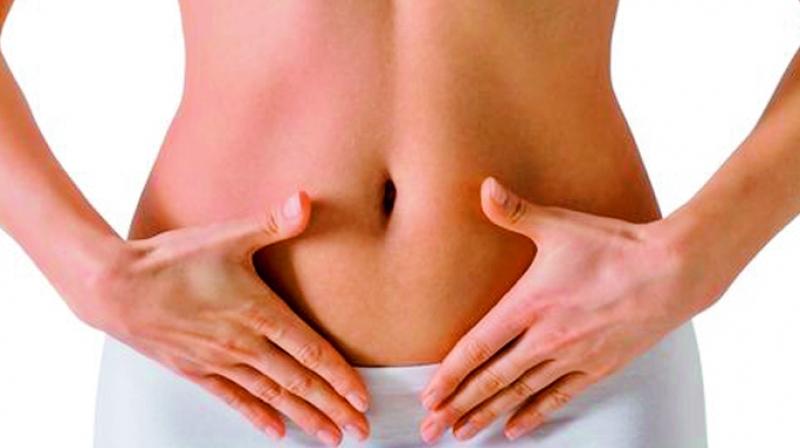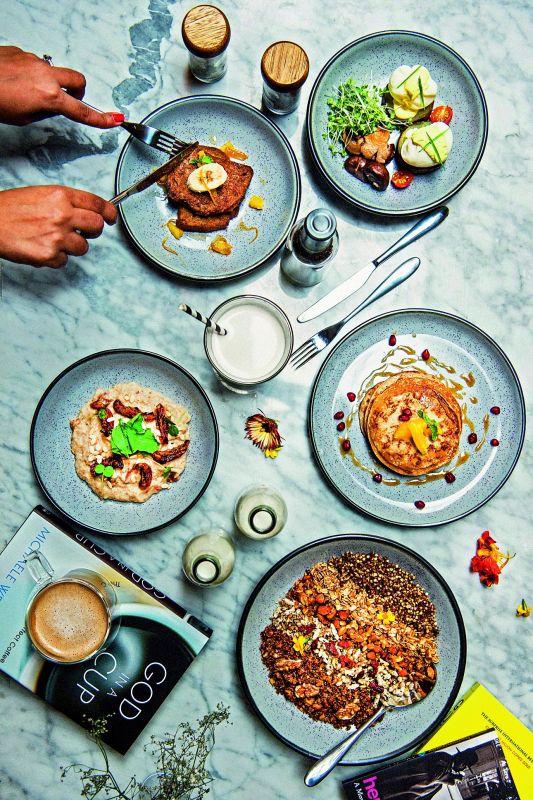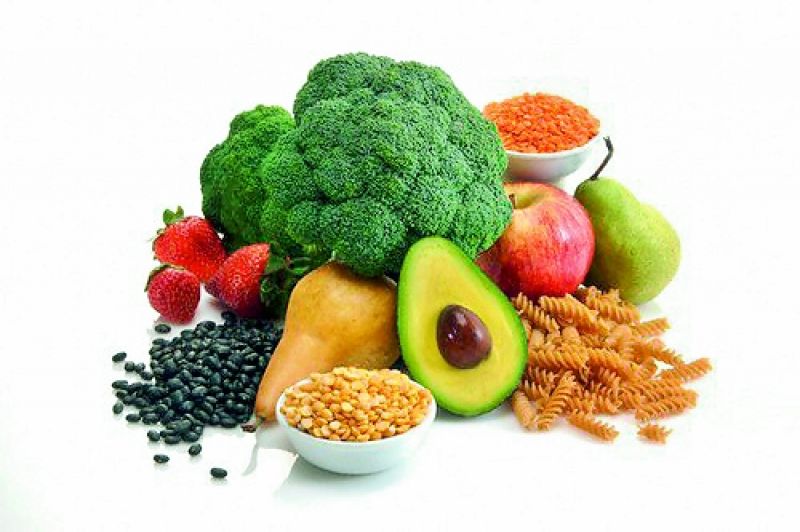Heal your gut
It can be easy to ignore the rumbling and grumbling in our tummy. We speak to gastroenterologists on ways to a healthy, happier gut.

All disease begins in the gut,” said Hippocrates, the father of modern medicine. And he was indeed a wise man. Scientists are now convinced that our gut is the second brain. While it won’t necessarily help us study for an exam or get a promotion, our gut can influence our mood, emotions, immune system and long-term health.
What is the gut?
Simply put, the gut is a long tube that starts at the mouth and ends at the anus. Also known as the gastrointestinal tract, it’s responsible for processing food and drink from the moment we consume it, to the moment the body absorbs or excretes it. No wonder it’s so enormous — if it were spread out flat, it would cover an entire tennis court! According to Dr D. Nageshwar Reddy, Chief of Gastroenterology and Therapeutic Endoscopy, Asian Institute of Gastroenterology, Hyderabad, good gut health does not just lead to effective digestion and absorption of food but also stronger immunity and a state of well-being.
 Pumpkin Pie with salted jaggery caramel at 212 All Good, Mumbai. Jaggery acts as a detox, prevents constipation by aiding digestion.
Pumpkin Pie with salted jaggery caramel at 212 All Good, Mumbai. Jaggery acts as a detox, prevents constipation by aiding digestion.
What’s wrong with our Gut?
Most people believe that their gut is in perfect health as they don’t suffer from Irritable Bowel Syndrome, bloating, acid reflux, heartburn and almost never get stomach upsets. But symptoms of an unhealthy gut can often manifest themselves in other parts of the body. After all, the body is an integrated ecosystem, so warning signs appearing in one area may be caused by imbalances in an entirely separate system. “People seem to think that the gut is only concerned with digestion and excretion. However, it is the largest immune organ and a bad gut is often associated with a number of autoimmune disorders, infections and allergies,” warns Dr Poornachandra K.S., Consultant Gastroentrologist & Hepatologist, Fortis Hospital, Bannerghatta Road, Bengaluru.
Backing the Bacteria
Bacteria in the gut might sound like a bad thing but the truth is that our bodies, specifically, our guts are full of bacteria. There are approximately 100 trillion microorganisms inhabiting the bowel alone. Thankfully, the vast majority of this bacteria is good — or at least they should be, if we’re talking about an ideal gut. “That’s the key to gut health — ensuring that we have more of the ‘good’ bacteria, than the ‘bad’. These helpful bacteria called Probiotics (which literally translates to ‘for life’) improve digestion, strengthen the immune system and manufacture the vitamins our body needs,” stresses Dr Nageshwar Reddy.
However, there is a modern day war being raged against bacteria — from soaps and cleaning agent to antibiotics prescriptions. It seems that everyone is out to kill these guys. Mainstream medicine is finally realising that antibiotics, which indiscriminately wipe out gut bacteria — the good with the bad — may alter the balance of the microbiome in the long run. “When we put antibiotics in our mouth it doesn’t automatically go to the sinus or the infection, it goes first to the gut and that’s where most of our bacteria are and they have to deal with this. They have to develop strategies to survive and some of them don’t and they just die. This results in an imbalance in the ecosystem. Kids who have a lot of antibiotics tend to have Irritable Bowel Syndrome later on in their life. Most common colds are caused by viruses and antibiotics won’t do anything but destroy your gut,” says Giulia Enders in her international best seller Gut: The Inside Story of Our Body’s Most Underrated Organ. The solution: Use them smartly and when strictly necessary.
 Spinach is a fantastic source of vitamin A and also provides zinc — both of which are essential for maintaining a healthy gut lining.
Spinach is a fantastic source of vitamin A and also provides zinc — both of which are essential for maintaining a healthy gut lining.
The Promise of Probiotics
To keep the right balance of bacteria thriving in our digestive tract we need to include probiotic-rich foods like yogurt, kefir (creamy, yoghurt-like drink made from fermented cow’s milk) and kimchi in our diet. We also need Prebiotics — ‘food’ for probiotics in order to thrive and control the growth of harmful bacteria. These can be found in raw asparagus, cooked onions, bananas and kiwifruit. Fibres essential for digestion can be found in vegetables, fruits and whole grains. Fruits like pineapple, kiwifruit and papaya help break down the protein, easing digestion when eating a heavy meal with meat.
“Constipation and bloatedness are common consequences of inadequate bowel movements. Good bowel movements require primarily three things: Water, exercise and fibre. Kiwifruit is a good source of fiber, like many fruits, but research supports that kiwifruit fibres have a high water holding capacity, helping in laxation. High fibre natural food supplements are always better than laxatives for constipation,” advises Dr Nageshwar Reddy.
Fermented food like idlis and dosas are a good choice for a healthy gut. Cruciferous vegetables like kale, cabbage and cauliflower are a must.
When eating out
While the trend of healthy eating hasn’t been wholly embraced by the restaurant fraternity, there are some A-list establishments like Bombay Canteen, Mumbai, 212 All Good, Mumbai and Smoke House Deli dishing out gut-friendly food (read vegan, gluten free, trans-fat and dairy free dishes). There are probiotic dishes as well as those inspired from Paleolithic fare. The Bombay Canteen’s barley and jowar salad, Smoke House Deli’s cacao nib and soya milk cheesecake with a nachini crust and 212 All Good’s jowar fettuccine aim to take out the guilt associated with eating out and replace it with a feeling of wholesomeness and good health.
“The idea was sparked with the recognition that today’s diner is eating out more than ever and what commonly follows is ‘Post Meal Stress Disorder’ (PMSD), the chronic guilt experienced from eating at restaurants, and in turn a dysfunctional relationship with food and body. We wanted to create a balance. The thing is when someone is out for a meal that balance very rarely applies, so we said why not create something that gives you the experience of eating out minus the guilt and is good for your system,” says Romil Ratra Group Director, Bellona Hospitality Services Limited, the company that owns 212 All Good.
According to Dr Rakesh Patel, Gastroenterologist, Fortis Hospital, Kalyan, Mumbai, locally produced food is good for the gut. “If you’re living in the tropical area, avoid a Mediterranean diet and consume tropical grown fruits and vegetables. Anything that is preserved for a long time, especially food from tins, is harmful for the gut.”
Banish stress
The existence of the brain and gut connection makes it clear that stress can be linked to gut health. When stressed, our brain sends messages to the gut in the form of chemicals. These chemicals affect how well our gut works. “A part of the nervous system that regulates all functions controls the digestive system. Chronic stress is one of the biggest enemies as the human body is not able to fully engage in digestion if it is always mentally occupied,” reiterates Dr Patel.
While stress is an unavoidable consequence of our busy lives, how we manage stress matters. So make sure to de-stress naturally through time spent with family, exercise, massage and meditation.

